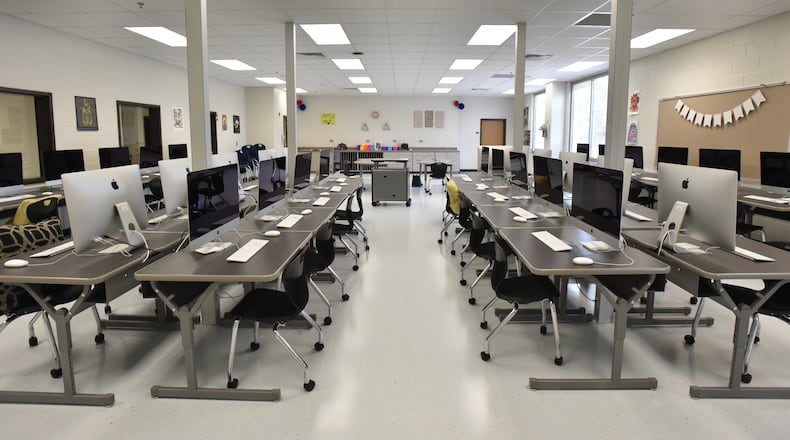It’s that time of year again, when families across America are living back-to-school season. Most families and schools will approach the new school year in much the same way as they have in years prior – and that may be a mistake that could have far-reaching implications for our students and our communities.
Students need schools where they can uncover new opportunities and develop the knowledge and skills to thrive. We all need schools that train today’s generation of children to be the leaders, entrepreneurs, and innovators of tomorrow, to secure our economic future.
In some of our great cities, there are leading-edge schools that undoubtedly fulfill those needs. But in far too many, traditional education limits students’ opportunities and aspirations to the world they already know and fails to adequately prepare them for the future. In fact, less than half of our high school students feel that they are prepared for college and a subsequent career. And far fewer teenagers are pursuing the term-time and summer employment opportunities that used to teach our youth valuable professional skills: nationally, teen worker rates have fallen from 45 percent to 20 percent since 2000, according to the Bureau of Labor Statistics.
At a time when economic inequality is at its highest levels since before the Great Depression, there isn’t a more vital mission to the long-term socioeconomic health of our nation and bridging seemingly insurmountable divides than giving all children – regardless of the circumstances they were born into – the tools and opportunities they need to achieve future success.
To foster a student’s ability to develop the practical and emotional skills they need to build that successful future, we must show them the peaks and valleys of career paths that exist while they are still in school – before they enter the job market.
The good news? We already know the core skillsets children need to meet their potential and shape their own future – a strong educational foundation of business, economics and entrepreneurship. The even better news? Some organizations are already recruiting businesses to partner with school systems and create curriculums that give students valuable hands-on business experience while still in the classroom.
For example, across the nation and in my hometown of Atlanta, Junior Achievement has partnered with many companies, like Chick-fil-A, to build JA Discovery Centers, where middle school students are exposed to realistic experiences available in their city to learn how to manage their personal finances, and operate a business. The goal of these programs is to help students connect the value of education to future opportunity and prepare them to be a valuable part of the workforce they will soon enter.
In 2015, Junior Achievement broadened its approach to its mission , launching “3DE ” (formerly JA Academy), which uniquely brings together school districts, JA, and corporate partners to redefine our approach to high school education to better reflect the real-world. The schools provide students with interdisciplinary learning through authentic case methodology, real-world experiences, and coaching with business leaders. Together, these elements provide students with exposure to career paths they might have otherwise not known, and help them learn how to solve real business challenges, all with the help of business leaders who work in their communities. Today, 3DE is in six schools in four districts throughout metro Atlanta.
We now know it works when businesses and schools work together. The 3DE students consistently outperformed their peers on 100 percent of the statistically significant Georgia Milestones and other Academic benchmarks during the 2016-17 school year. Most importantly, 3DE schools are effectively engaging and elevating students, lifting their aspirations and, hopefully, breaking the cycle that a lack of economic opportunity has created for too many families and communities in our region.
We can continue to make great progress as a community when businesses partner with our public schools to bring relevant, authentic and experiential learning directly to students. For example, Delta Air Lines recently announced its commitment to 3DE. And SunTrust awarded grants to more than 1,400 educational institutions and nonprofits through its foundation in 2017 to promote financial education, entrepreneurship and career readiness.
As we grapple with an economy that is at once both thriving and leaving millions of American families behind, this kind of educational innovation is a key strategy that leaders of business, education and government can and should implement to ensure their communities can take part in the American Dream.
In doing so, we strengthen the future workforce that will power our country’s businesses, expand opportunity for families who support our businesses and would otherwise be left behind, and most importantly, empower our nation’s children to achieve beyond the artificial limits too often placed upon them.
Rodney Bullard is vice president of community affairs for Chick-fil-A Inc., and executive director of the Chick-fil-A Foundation.
About the Author
Keep Reading
The Latest
Featured


